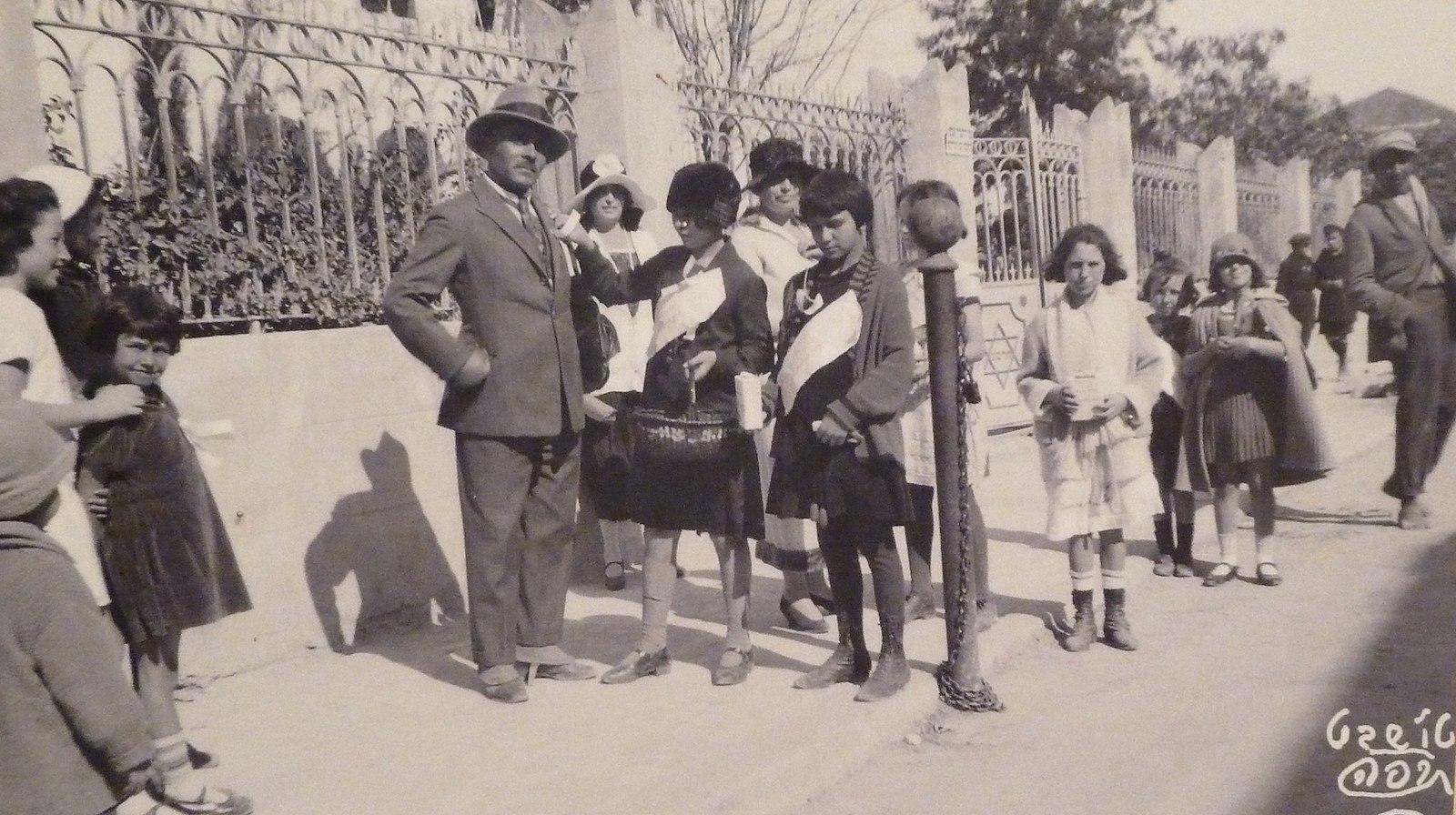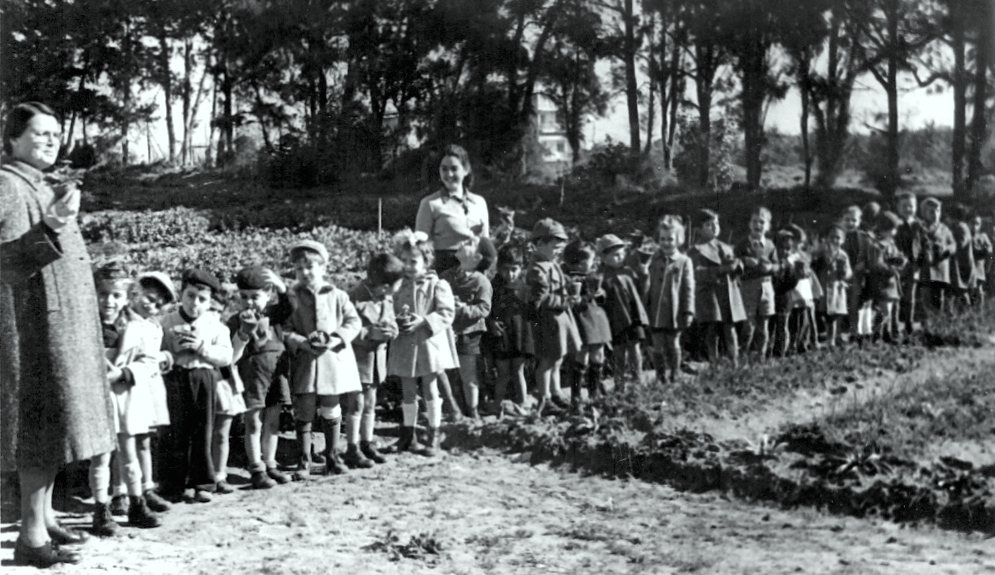When the Jews of Europe began to establish agricultural settlements in what was then Palestine in the late 19th century, they were fulfilling the dream of Jews for almost 2,000 years before them. As they reclaimed the Land long celebrated by and revived Jewish life on it, the holiday was again transformed.
The Jewish National Fund (Keren Kayemet LeYisrael, established in 1901 to collect money to buy property in Palestine) arranged highly spirited annual Tu Bishvat tree-planting ceremonies. In a procession with marching bands and banners, thousands of people carrying young trees sang and danced on their way to the hillsides. Today, almost one-seventh of the entire population of the State of Israel goes to the countryside to plant saplings.

Outside Israel, the day was often devoted to activities centered on the geography and produce of the land. Palestine Day, as it was known in America, was celebrated with parties, songs, games, and stories at school, synagogue, and home.
With your help, My Jewish Learning can provide endless opportunities for learning, connection and discovery.
Reprinted with permission from Celebrate! The Complete Jewish Holiday Handbook (Jason Aronson).


